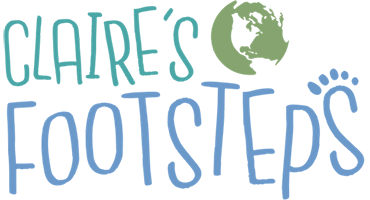If you’re visiting the capital city of the UK, you might be wondering is London safe?
As a world traveller who’s trying to visit 100+ countries, safety is incredibly important to me.
However, something that I constantly talk about on this blog is that many places around the world are safer than they seem.
Often, in doing so, I compare them to London – the city that I grew up in and still spend a lot of time in – demonstrating that, in some ways, places like Singapore, Vilnius and Algiers are just as safe as the UK capital.
But wait – does that mean London’s not safe?
Well, no – I usually use it as a comparison because London’s a “familiar” city to a lot of my readers.
However, I thought it might be useful to write a London safety blog post for any travellers who are new to the city.
Because, while London is by and large safe, there are a few things to consider when visiting, which are especially useful if you’re not used to large, European cities.
So, here’s my full assessment of London’s safety, written from my extensive knowledge of 18 years living there!
This blog post may contain affiliate links.
Is London safe?
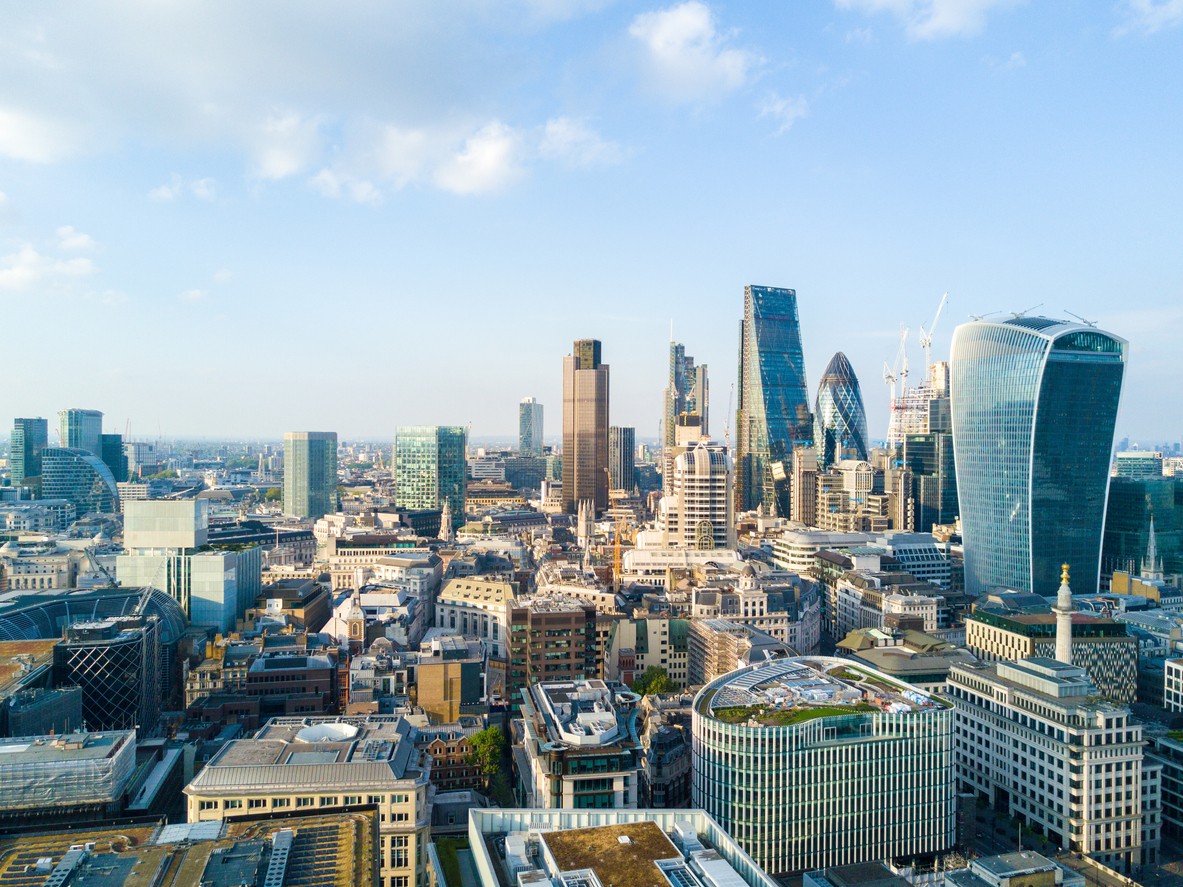
Generally, London is safe.
Myself, my friends and family have lived in London suburbia and visited Central London frequently for all our lives with very few dangerous situations.
However, like most big cities, things can and do happen.
After travelling and living in a more rural part of the UK, I wouldn’t say London’s one of the safest places in the world, but it’s also relatively easy to stay safe here.
You’d have to be unlucky for any incidents to affect you on vacation, but it is always a possibility.
The good news? By reading this guide, you’ll be clued up on what could happen and how to avoid it!
Solo female travel in London
I’ve spent a lot of time exploring London on my own, and generally it’s safe.
Street harassment can happen, although it’s becoming less and less common – at least I’ve noticed it less in recent years.
It’s very important to be mindful of who you meet when out, including online dates and people who you meet in bars (but of course, this is important anywhere).
I’d also strongly advise to not walk around late at night, especially as a solo female who isn’t aware of the area. Be mindful of taking the tube and night buses late at night too as they’ll be much quieter.
Crime rate in London
The crime rate in London is certainly not as low as in other cities around the world, but it’s also not so high that it’s likely to affect your trip.
Crime Rate reports 95 crimes per 1,000 people in 2022.
So, certainly not nothing, but be aware that this factors in petty crime including shoplifting and bicycle theft.
In fact, one of the most common crimes in London is anti-social behaviour, which can mean a variety of different things, most of which don’t affect tourists.
Plumpot notes that 30 of these 1,000 are classified as violent crimes.
Again, not insignificant, but London is a big city and while violent crime can happen, you’re unlikely to be a target on a trip here.
Knife crime in London
London does have its problems with knife crime, but it’s usually between gangs – the odds of getting caught up in it as a tourist is very low.
As a local, I know one person who has been a victim of knife crime (she had to go to hospital but had no lasting injuries); she was targeted when walking home after work at around 11:30 pm.
So, you can reduce the risk even further by avoiding walking around at night, especially in parts of London that you don’t know.
Gun crime, however, is not an issue in London. Guns are very strictly regulated in the UK, and the hard border between the country and the European Union means that these weapons can’t be imported.
Is there a risk of political unrest in London?
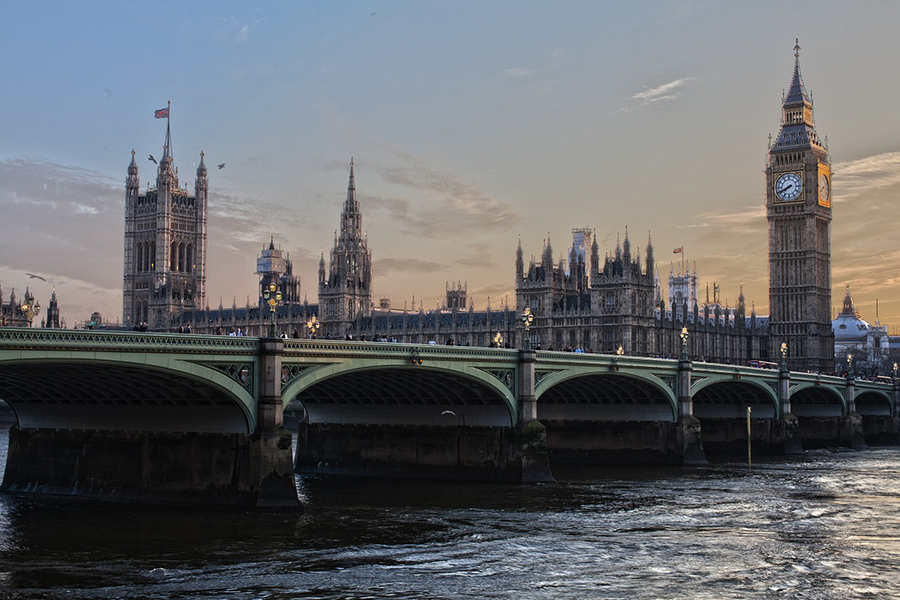
Not really. There’s political dissatisfaction, certainly, but not to the extent where unrest is a real possibility.
Many of us in the UK are not fans of the government; UK politics has been a bit of a joke in the last few years.
However, we are a democratic country with freedom of speech, and while protests do arise, these rarely turn violent. It’s certainly not a day-to-day worry for us locals!
Is there a risk of terrorist attacks in London?
There are risks of terror attacks in many cities throughout the world, London being one of them.
Attacks do happen here, but it’s important to put it into context.
They’re very rare – one happens every few years – and while they’re always tragic for anyone involved, the likelihood of actually being involved in one is very low.
Terror attacks in London do not usually involve guns due to our strict gun control, and we have excellent counter-terrorism forces who foil the huge majority of bomb plots targeting the capital.
Knife attacks can happen, but they’re very rare.
Safety on public transportation and in London taxis
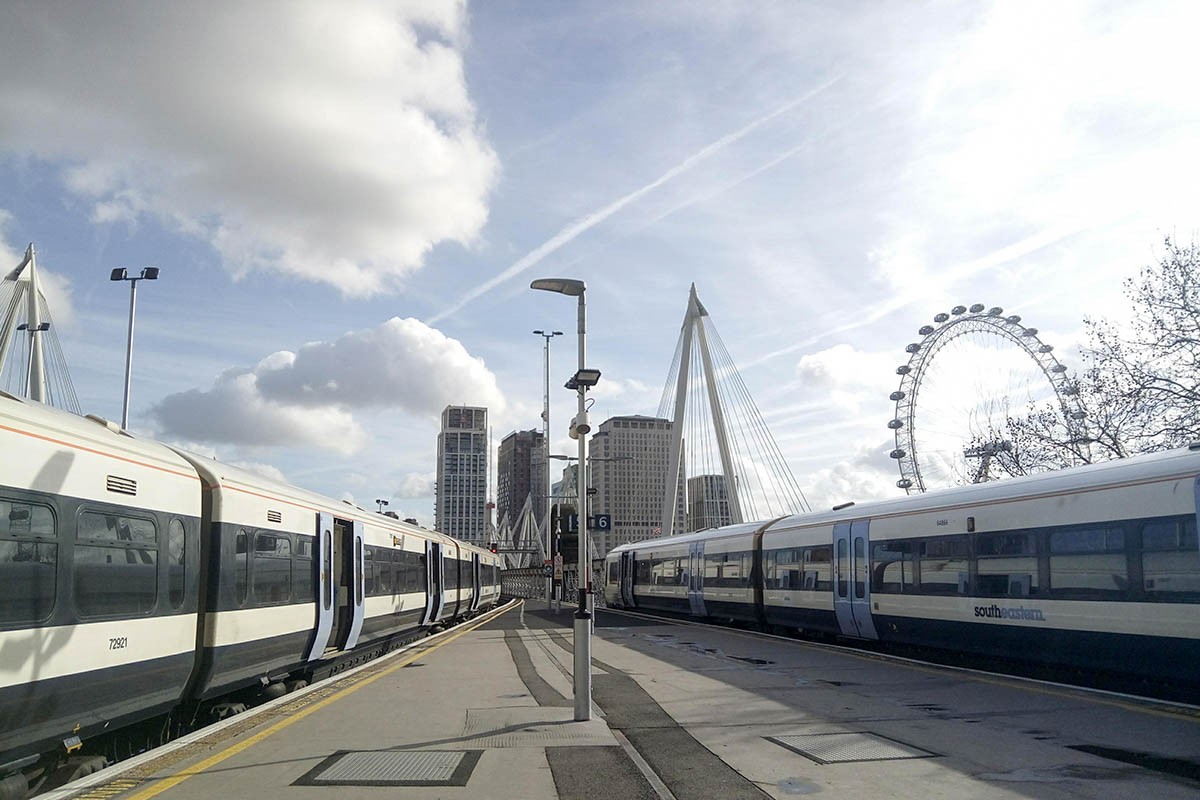
Public transport in London is generally safe, and often it’s the best way to travel around the city.
The roads are usually quite well managed, and traffic generally moves slowly enough that if any road incidents do happen, they’re minor. The “Tube” (our name for the subway or metro) also provides excellent service to much of the city.
But I’d recommend avoiding taking the tube very late at night (some services are 24 hours) if you’re on your own, especially if you’re a woman. It’s safer to take a taxi instead.
London taxis (otherwise known as black cabs) are safe; taxi drivers in London have immense knowledge of the city and can usually take you to your destination with no sat nav. Nowadays, they accept card and cash payments.
However, I usually use Uber or Bolt out of convenience. They’re cheaper and I find them easier to use, plus I like to have the tracking turned on as an extra safety feature (when I’m in an Uber on my own I usually share my location with my partner).
Dangerous areas of London
I wouldn’t say any areas of London leap out as particularly more dangerous than others – in fact, the official stats say that the most crime happens in the City of London and City of Westminster (aka the very centre of London!).
However, this factors in things like pickpocketing, which certainly does happen more in Central London.
Areas near where I grew up, such as Croydon, Lewisham and Brixton, often earn a reputation as being “dangerous” due to slightly higher crime rates – but in reality, they’re becoming safer and safer every year.
In all honesty, rather than blanketing some areas as “no-go” neighbourhoods, I’d just recommend taking common precautions wherever you are in London.
Scams in London
Scams in London do happen, and scammers are likely to target people who look obviously like tourists. So, to avoid these, try to blend in!
- Ticket Scams at Tourist Attractions: At popular tourist destinations like the London Eye, Buckingham Palace, or the Tower of London, you may find individuals selling ‘discounted’ tickets. These are often fake. Always purchase tickets from official vendors or websites like Get Your Guide.
- The Shell Game or Cup Game: Commonly seen on busy streets like Oxford Street or near tourist hotspots, this is a betting game where you’re asked to guess the location of a ball under one of three cups. It’s a well-orchestrated scam, often involving several people working together to deceive spectators.
- Fake Petitions or Charity Workers: Around Trafalgar Square or Covent Garden, you might be approached by people asking you to sign a petition or donate to a charity. While they engage you in conversation, an accomplice might pick your pocket.
- Taxi Scams: While London’s black cabs are generally reliable, beware of unlicensed cabs, especially around nightlife areas like Soho or Shoreditch. Always check if the taxi is licensed, or better yet, book through a reputable app.
- Rental Accommodation Scams: When looking for accommodation, especially online, be cautious of deals that seem too good to be true. Scammers often create fake listings or demand deposits for properties that don’t exist. Use trusted websites and never transfer money without verifying the legitimacy of the listing.
- Overpriced Street Performers: Street performers are common in areas like Leicester Square. Some may demand money aggressively after taking a photo with them or watching their performance. It’s okay to walk away without paying if you’ve just been watching, but I would recommend not taking a photo with them to avoid them demanding money.
Healthcare in London
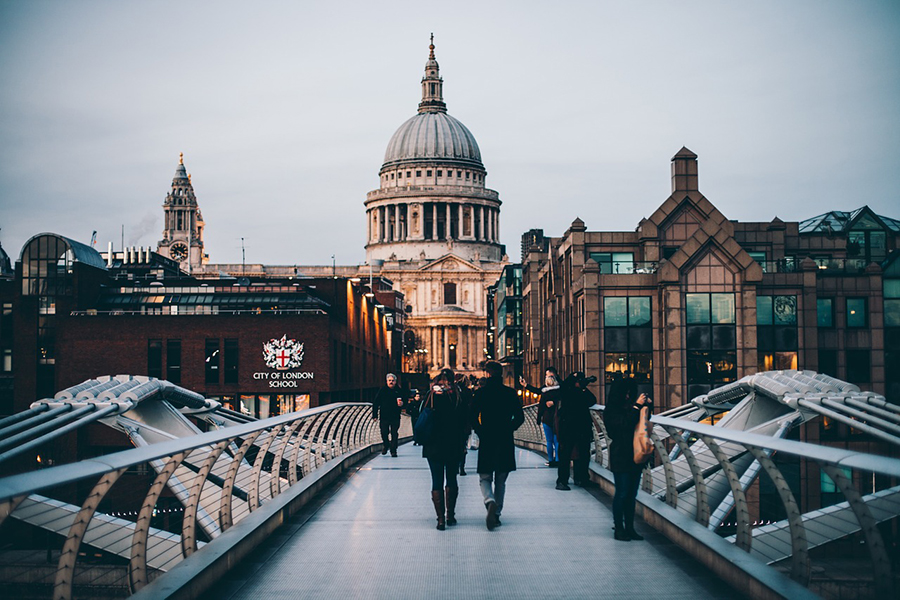
In the United Kingdom, we have a national health service (known as “the NHS“). The NHS offers free healthcare for citizens, residents and some visitors.
EU citizens and nationals from other countries, such as Australia, may receive free emergency healthcare (double-check up-to-date arrangements before travelling), but treatment may cost.
I’d still recommend purchasing adequate travel insurance before travelling to London, as this will cover you if you need treatment while you’re here. I use and can recommend SafetyWing.
LGBTQ+ travellers in London
As a straight woman, I can’t talk for gay people in London, but on the whole, the city has a thriving gay scene with plenty of queer bars and clubs, and large pride celebrations each year. Most people, particularly the younger generation, are extremely supportive of the LGBTQ+ community.
Some of my gay friends have told me, however, that they’ve experienced discriminatory comments a couple of times. Unfortunatley this can happen in London, as it can anywhere, but it certainly doesn’t reflect the attitude of most people in the city.
The best gay scene in the UK is possibly Brighton, which is an hour away from London by train on the south coast. It’s worth visiting if you’re a member of the queer community!
For further information, check out Nomadic Boys’ gay guide to London.
Cultural Considerations for London
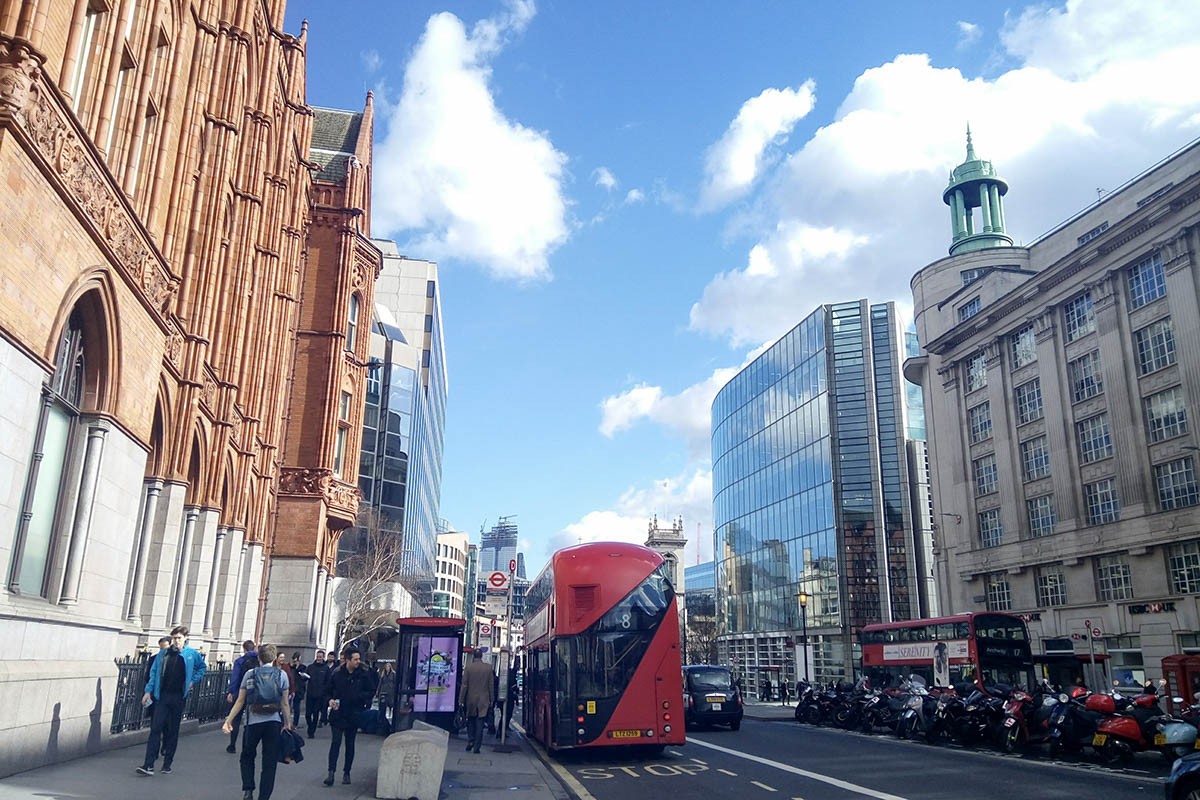
London is a multicultural city; many Londoners have ancestry from all four corners of the globe. This is one of the things I love the most about the British capital!
This means that cultural differences are accepted and appreciated, and all communities have a space in the city.
That said, there are a few British cultural considerations to consider to make your trip here as safe and enjoyable as possible!
1) Queue properly
We love a queue in the UK (this isn’t a stereotype). If we’re waiting for something, we queue orderly, one behind the other, and wait our turn. If you don’t queue, well, it probably won’t be unsafe, but you’ll certainly be met with a few disparaging looks!
2) We’re very polite
Brits are a bit excessively polite, but we do “mind our Ps and Qs” as some might say – we always say please and thank you. I’d recommend trying to remember to do this while you’re here, even if it can seem a bit much – because if you need any help, British people are much more likely to be responsive if you’re polite!
3) Londoners are quite reserved
As someone who’s lived in London and the South West, this is much more of a London thing – but it’s not common to strike up a conversation with people on the London Underground or elsewhere in the city. You can, by all means, and many people are receptive to it, but don’t be offended if people don’t seem that chatty!
4) Stand on the right on escalators
On escalators in London, particularly those that descend to the Tube (our metro) stations, stand on the right. This is so people who want to walk down or up can do so on the left. This is abided by throughout the city!
Not doing any of the above won’t put you in any danger per se, but they’ll help you not stick out as a tourist!
Food hygiene in London
Food hygiene in London is generally good. On the doors of eating establishments, you can see their food hygiene rating (usually out of five). Most places are a five or a four.
Getting food poisoning certainly can happen, but that would be because of individual restaurants rather than London as a whole.
Can you drink the tap water in London?
Yes, you can drink tap water in London and all over the UK – barely anyone in the country drinks bottled water.
Although, that said, after living away from London I do notice that it’s never quite as clear and tasty as the tap water we have in the West!
London weather safety
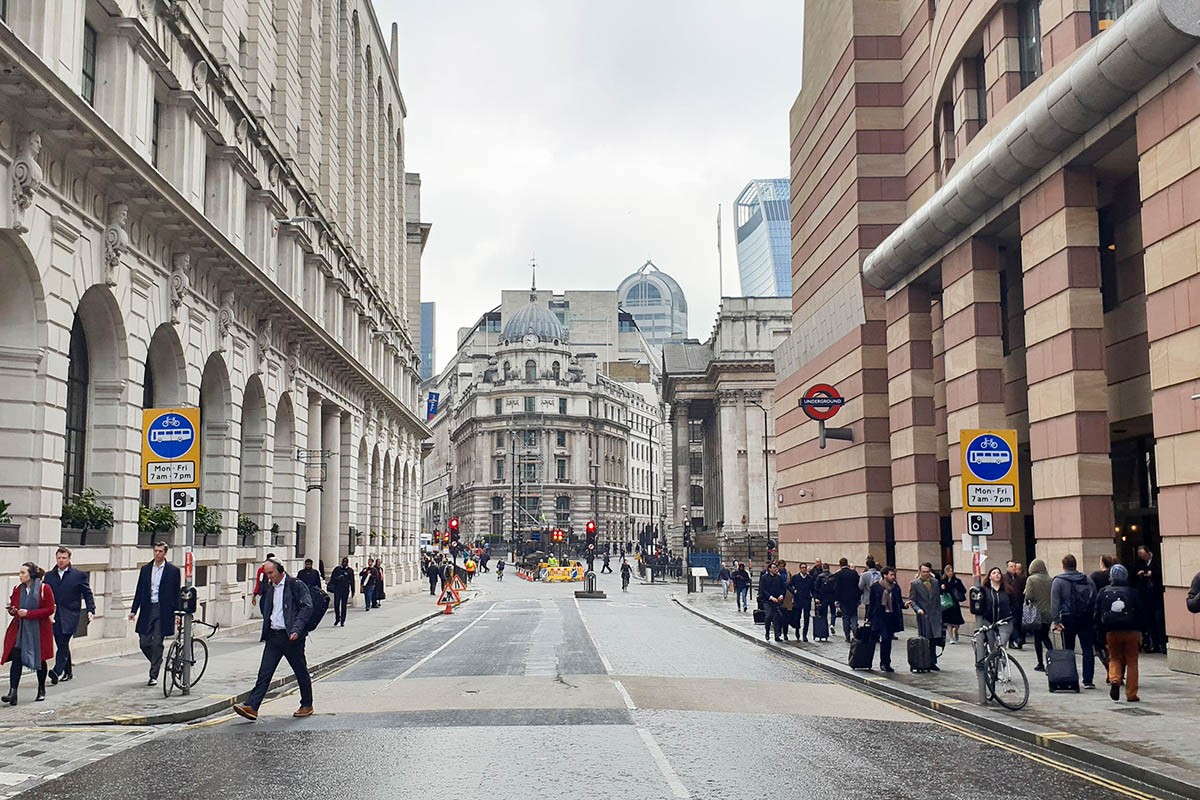
When you think of “London weather”, I bet you’re imagining drizzly, damp days?
We certainly have our fair share of rain – but we do have sunny days too! Snow is rare, but can happen once or twice a year.
Generally, our weather is very middling, which means that it’s usually a safe place as far as the climate is concerned.
We do have flooding sometimes, although not usually in Central London, and not to any great extent where it would cause danger.
Pavements can be icy in the winter months, but nowhere near the extremes of places like the Baltics or Scandinavia.
And in the summer, the temperature usually stays under 30°C – although it did hit 40°C in an extreme heatwave a couple of years back.
One thing that is worth noticing is because our climate is very middling, we don’t deal with extreme weather very well at all!
So, if you’re visiting London and it’s snowing, or the temperature’s over 30°C, expect delays and interruptions.
Much to many of my international friend’s amusements, when it’s 30°C+ we have safety notices up at our stations – but if you’re used to this weather in other countries, you’ll cope with it just fine!
Natural disasters in London
Along with weather incidents, we don’t really have any natural disasters in London – or all of the UK, bar the occasional flood.
Precautions to take in London
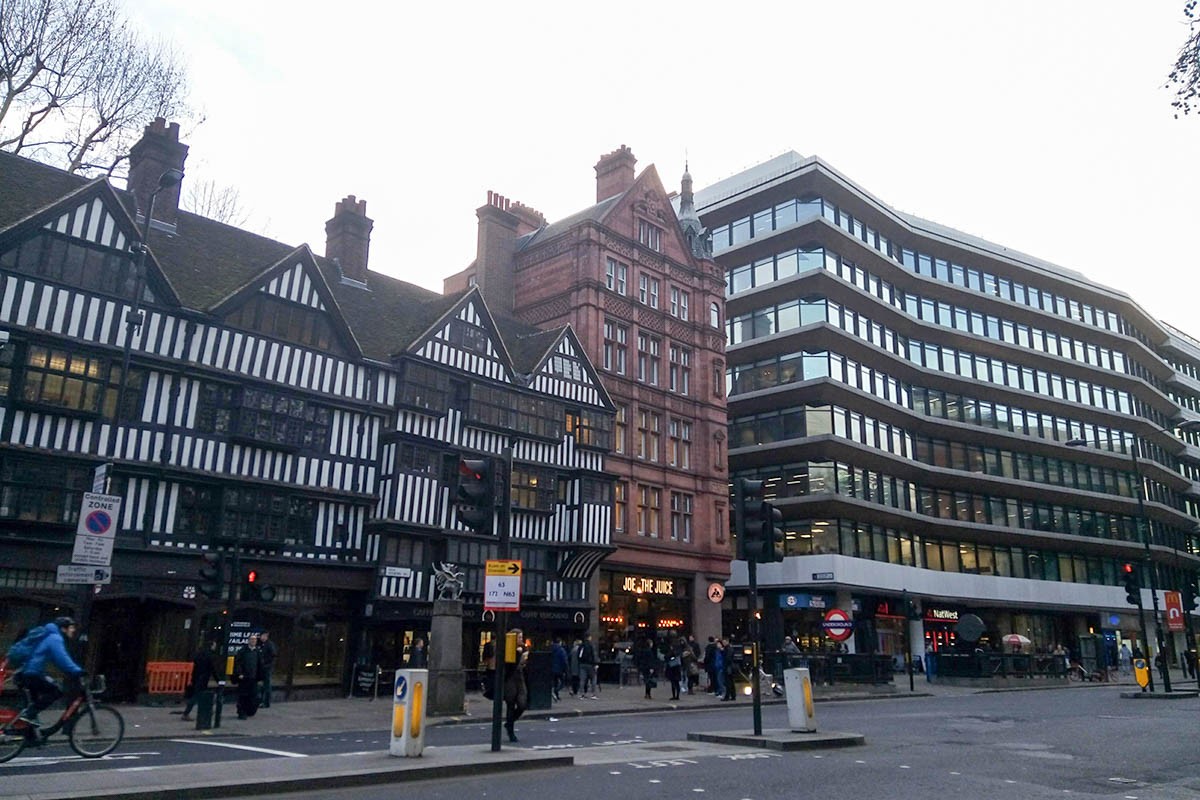
So, while London’s not one of the world’s safest cities, I certainly wouldn’t label it as dangerous either. Generally, with a bit of common sense, you can have a safe and happy trip here!
Here are my top tips, as a local, to boost your personal safety in London.
1) Don’t walk around at night
I’ve said this a few times in this article, but it’s worth stressing. Don’t walk around alone at night, especially if you don’t know the area and especially if you’re a woman. It’s just not worth the risk; incidents are rare but have happened.
Depending on the mode of transport available, either take a bus, tube, train or taxi instead of walking.
Which brings me on to….
2) Be mindful of deserted tube trains
Some Tubes operate a 24 hour service at weekends now, which is great! It gives people a more budget-friendly way to travel around while staying safe at night.
However, if I was on my own, I probably wouldn’t take the tube at 3am – the fact that it’ll likely be deserted would give me the creeps. I’d opt for a taxi instead.
3) But also be wary of the tube in rush hours
London can be very busy in rush hour (which goes on for longer than an hour – around 7am – 9am and 4:30pm – 6:30pm). The tube can be packed at these times, so they’re not the best for people with claustrophobia! I’d also recommend taking extra care if you have mobility requirements or are travelling with children at these times.
4) Be extra careful of where your valuables are
Pickpockets operate in crowded areas in London – I’m constantly telling my boyfriend (who didn’t grow up in the city) to move his phone from his pocket when we get on the tube! Keep valuables in a zipped pocket, preferably in a cross body bag.
5) Don’t carry large amounts of cash
Flashing cash could make you a target to a pickpocketer. Plus, London is pretty much cashless – I can’t remember the last time I carried around any with me! Grab a credit card with no fees and you’ll be dandy.
6) Don’t drink too much
The UK does have a rather heavy drinking culture; it’s not uncommon for people to get very drunk on a night out! While I certainly have historically had a few very drunken nights in London, I would recommend reigning it in a little if you don’t know the city.
7) Know emergency numbers
Our emergency number is 999, which you can call for an ambulance, fire or police. If you want non-emergency health advice, call 111.
So, are you ready to visit London?
London’s a bucket list city for many, and while it doesn’t have the lowest crime rate in the world, you can absolutely have very safe travels here!
It’s a very busy city, which is both a blessing and a curse at times – larger, more severe crimes may happen less when there are lots of people but it is a prime setting for petty theft and similar crimes.
The main tourist areas are generally safe, bar a few pickpocketers and scammers, and most other areas are fine in the daytime – just take precautions throughout the city at night.
But, if you follow my tips, you should find London to be a comfortable, safe place to be!
